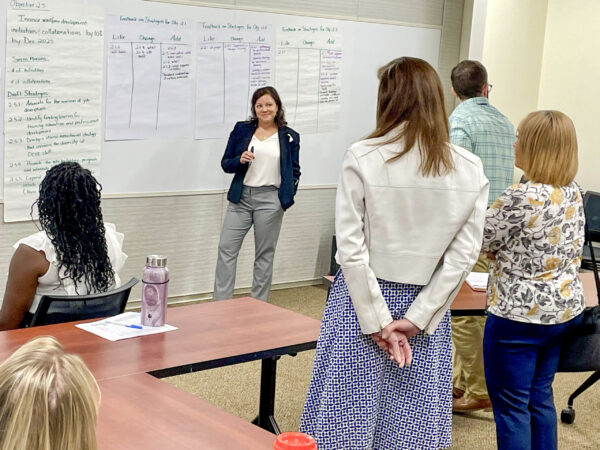Cities and towns often face limited capacity to assess and address community health needs. Recognizing similarities between their neighboring towns, staff from the Andover and North Andover health departments collaborated on a joint community health assessment (CHA) and community health improvement plan (CHIP). The project encompassed the Assess, Prioritize, and Plan elements of HRiA’s CHI process, as illustrated in our lens.
Community Health Improvement
Health Resources in Action provides clients with a process to innovate and improve community health.
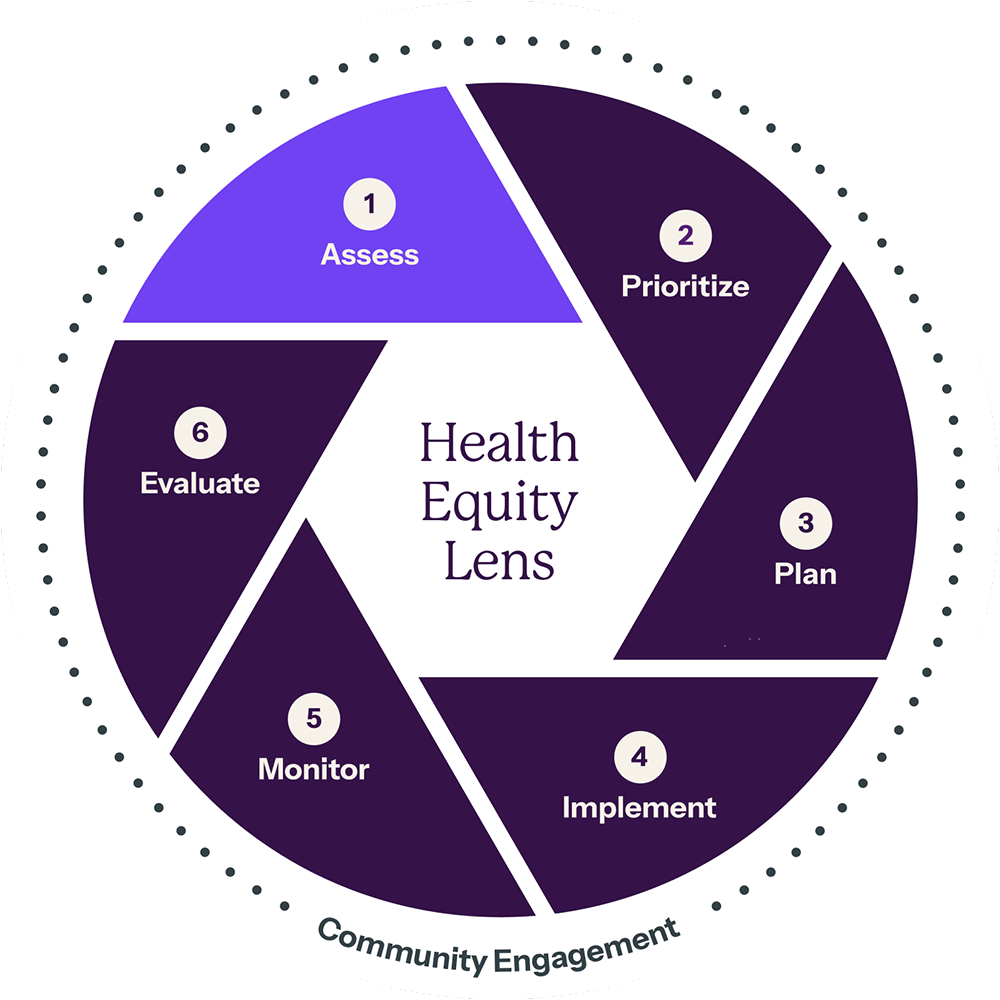
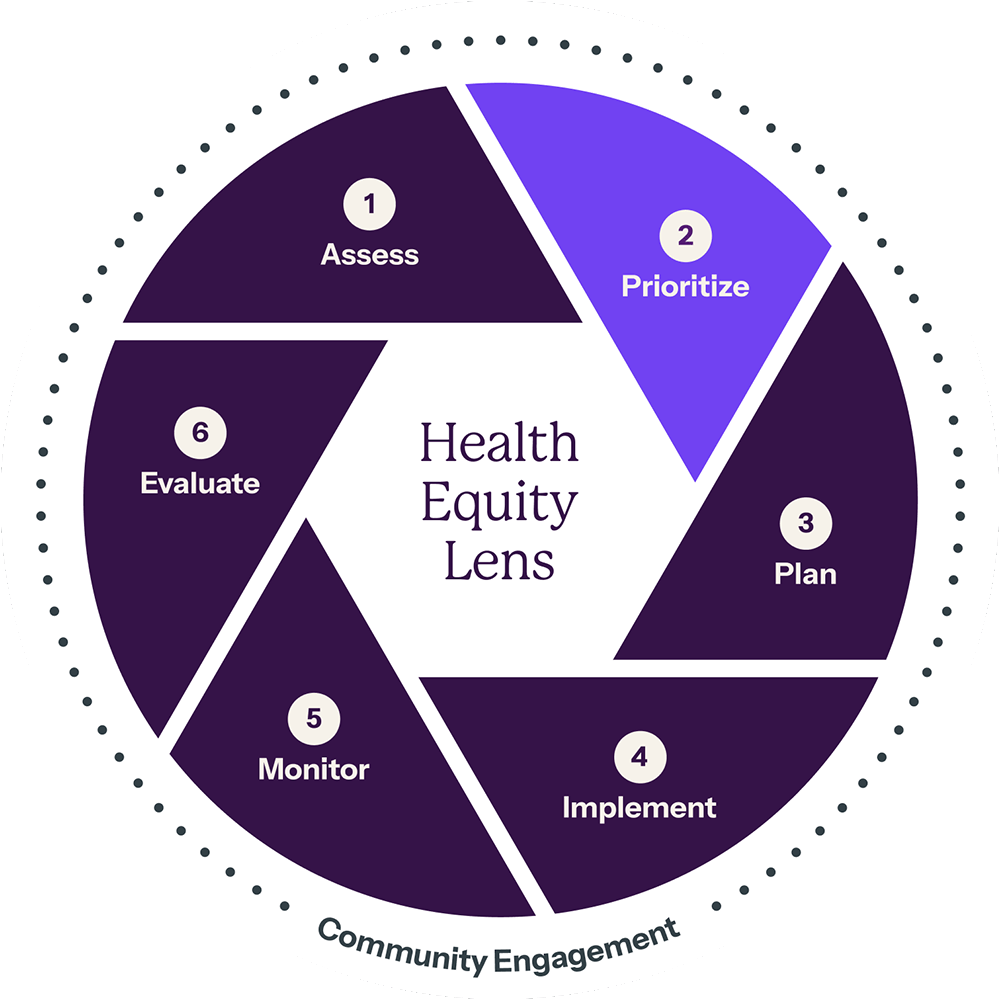
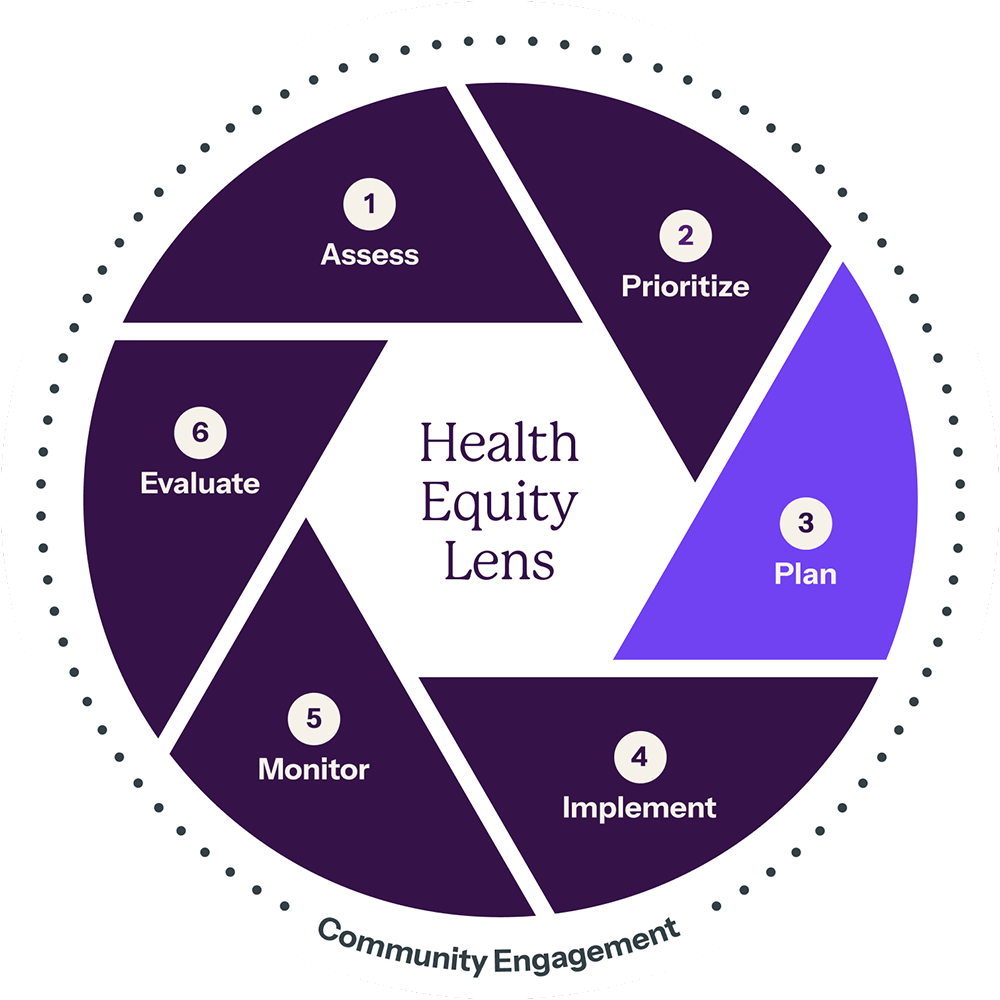
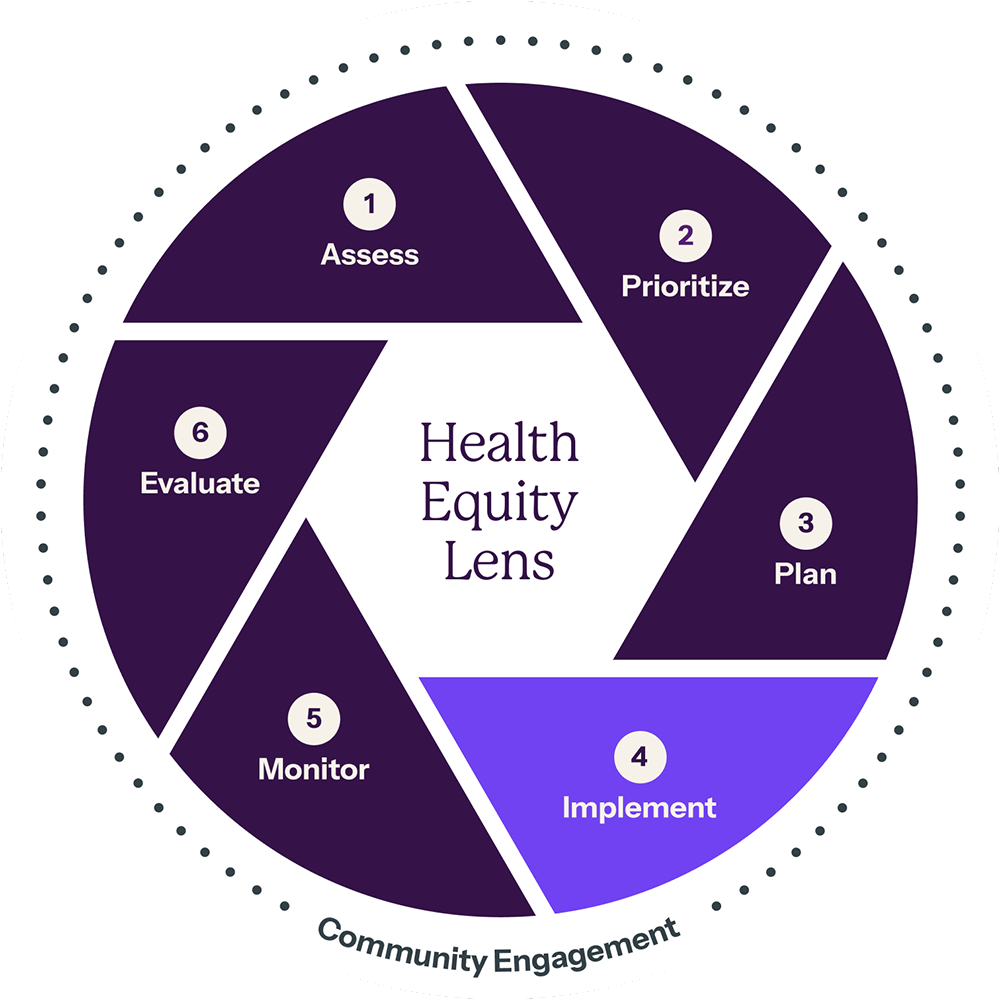
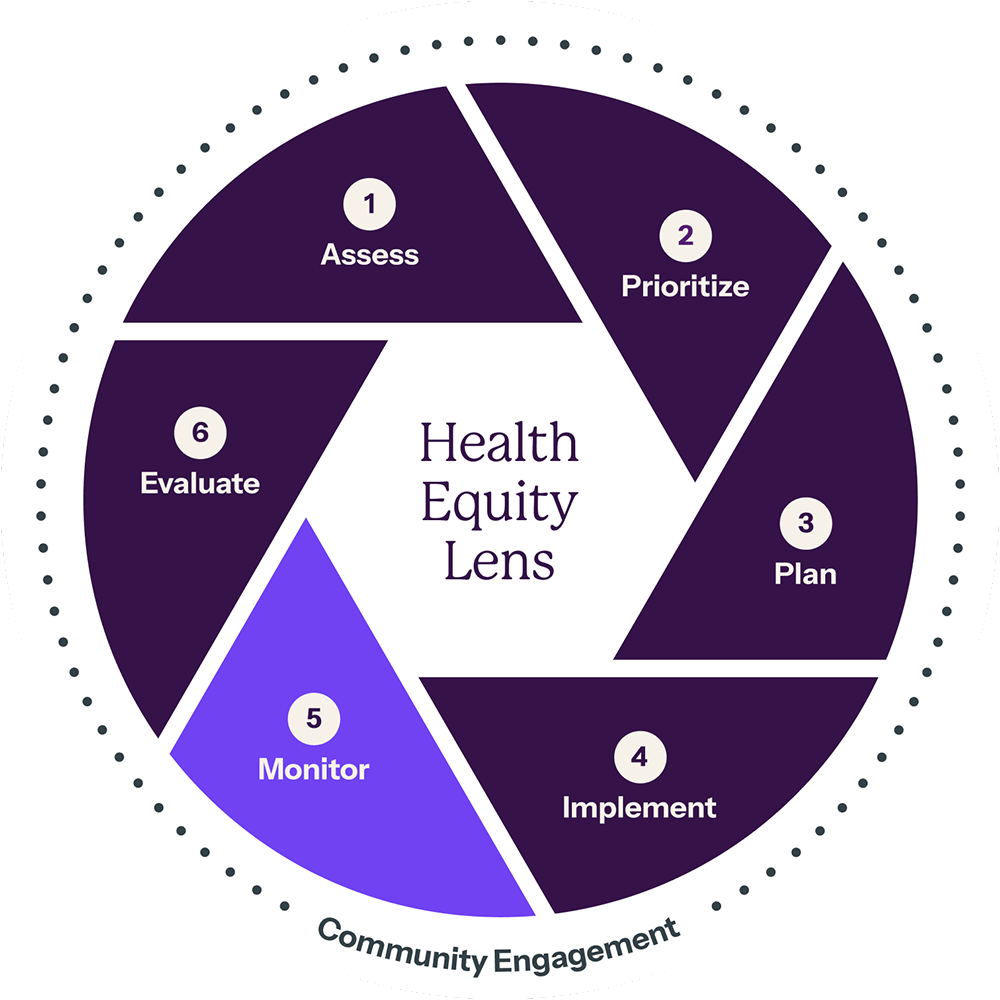
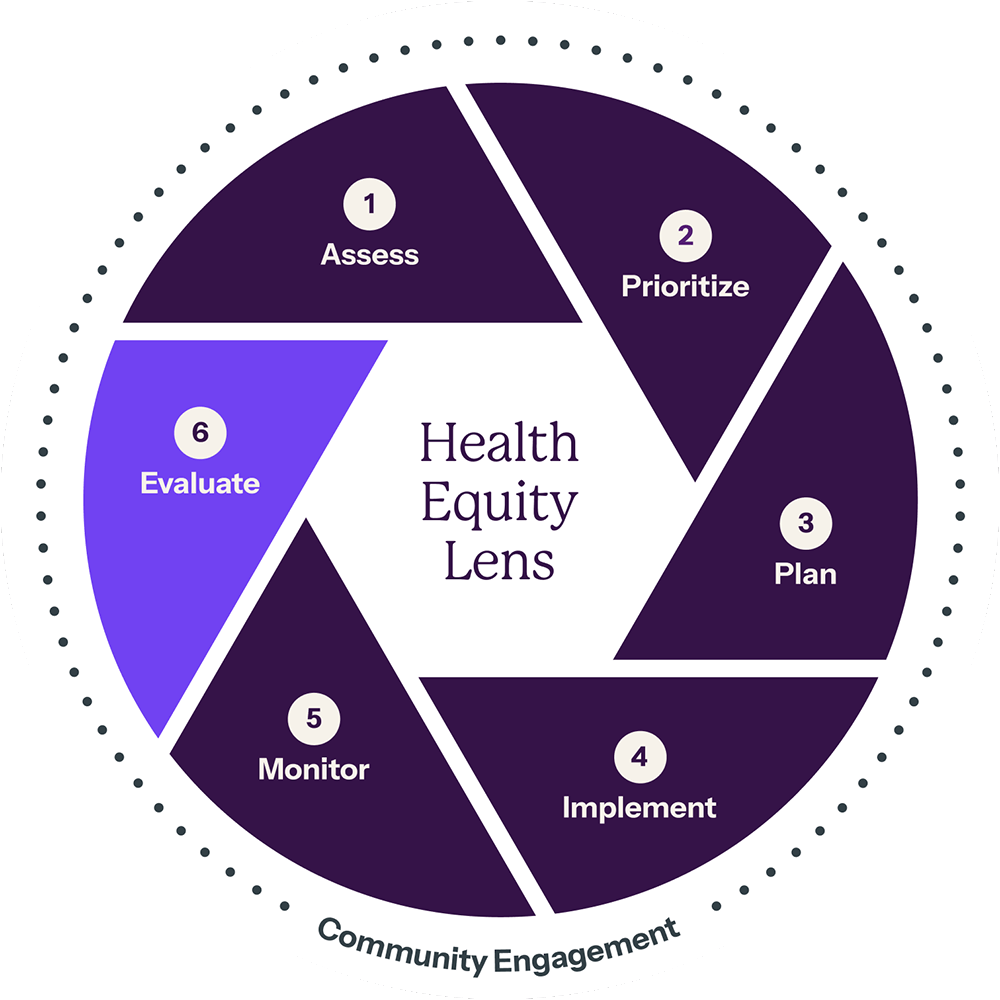
1
Assess
Assess and understand a community’s assets, challenges, and experiences using qualitative and quantitative methods and a community engaged approach.
2
Prioritize
Prioritize areas of focus based on key themes that emerged from your assessment.
3
Plan
Collaboratively develop goals, objectives for your priority areas and organize them into a 3-to-5-year plan.
4
Implement
Implement strategies outlined in your plan to meet objectives and impact community health.
5
Monitor
Monitor key metrics to assess progress toward community health improvement goals.
6
Evaluate
Evaluate the progress and impact of community health improvement and efforts.
Process
To guide the assessment and planning processes, HRiA supported the creation of an Advisory Committee. This Committee consisted of community members, leaders, and staff from both towns. With guidance from the Advisory Committee, HRiA facilitated the assessment process, including a review of secondary data, a community survey, eight resident focus groups, and 16 community leader interviews. HRiA then synthesized these data into key themes (Figure 2). Committee members reviewed the findings, discussed themes, and prioritized three areas of focus for their CHIP: Mental Health Across the Lifespan; Affordable Housing; and Diversity, Equity, and Sense of Community. In a series of virtual interactive planning sessions, participants co-created CHIP components and an accompanying one-year action plan.
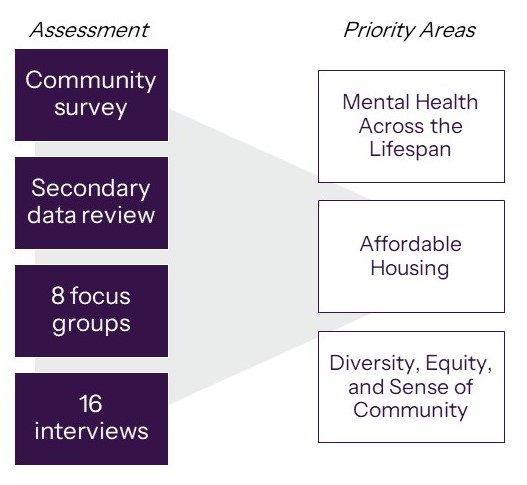
Results
HRiA presented each of the towns with key findings, representing multiple real-time perspectives on town assets and health needs. Town officials and partners participated in capacity-building sessions exploring topics such as power, influence, and health and racial equity to ensure their CHIPs can better affect systems change. In partnership with HRiA, teams of over 20 people from each of the towns created an actionable, data-informed plan to focus their efforts over the next three years. This plan included a detailed roadmap for the first year of work. To support the Towns’ communication about the assessment findings and resulting plan, HRiA also developed infographics for the three priority areas to share key findings and aspects of the CHIP in an easily digestible way.
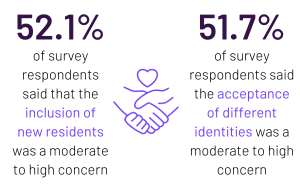
The infographics highlighted key data and plan elements so the towns can easily communicate the process, priorities, and plans for the future.
Abby Atkins,
Managing Director of Community Health Assessment
Key Takeaways
- Data from the assessment can be used beyond the plan; for instance, the Town of Andover is using findings to inform additional areas of their work, including refugee and immigrant health, healthy eating, and vaping concerns.
- Engaging community stakeholders throughout your process increases awareness of public health, buy-in and support for your plan.
- A strong CHA-CHIP process supports effective implementation.
- Having a trusted, experienced external partner to act as a neutral party can make the CHA-CHIP process less overwhelming.
Deep dive: Youth Mental Health
HRiA heard from young people in two formats—focus groups and key informant interviews. In focus groups, young people shared their experiences with mental and behavioral health. Of this project’s nine focus groups, five included youth or parents of youth. Six of 17 interviewees held experience or expertise in working with youth. These experiences later informed each town’s community health improvement plan. Following the assessment, HRiA and town residents—including youth—collaboratively developed a shared three-year community health improvement plan.
This collaborative endeavor demonstrates the drivers behind some of our key approaches. Below, we reflect on how this project benefited from amplifying voices, diverse perspectives, and collaboration.
Youth, school officials, and parents shared their experiences with the pressure to succeed, the impact of the COVID-19 pandemic, and the influence of social media. Based on these findings, members of the planning teams developed objectives to normalize and increase access to mental health support. Hearing directly from those most impacted by the issues helped the towns craft short- and long-term plans to address their most salient community needs.
We encourage our HRiA staff and supporting teams to bring their unique identities, geographies, skills, and experiences to all projects. In addition to strategic support, staff on this project brought experiences of working with youth, exploring health inequities, and a focus on mental health. Diversity within the project team improves results by reducing the potential for groupthink and bias.
We define collaboration as intentionally and respectfully leading, partnering, and following to strengthen relationships, uplift different voices, and build trust. As a partner, we supported the collaboration between the towns of Andover and North Andover through a combination of advisory, assessment, and planning services. We followed each town’s lead as they finalized community stakeholders to engage in the assessment and planning processes.
Rather than providing standardized strategies or predetermined answers, HRiA brings expertise in facilitation, listening, and empathy to ensure we are centering the voices of those most impacted. Our strategies are thoughtfully designed to amplify the voices of those closest to the issues, strengthen relationships, and co-create healthy, equitable communities where all can thrive.
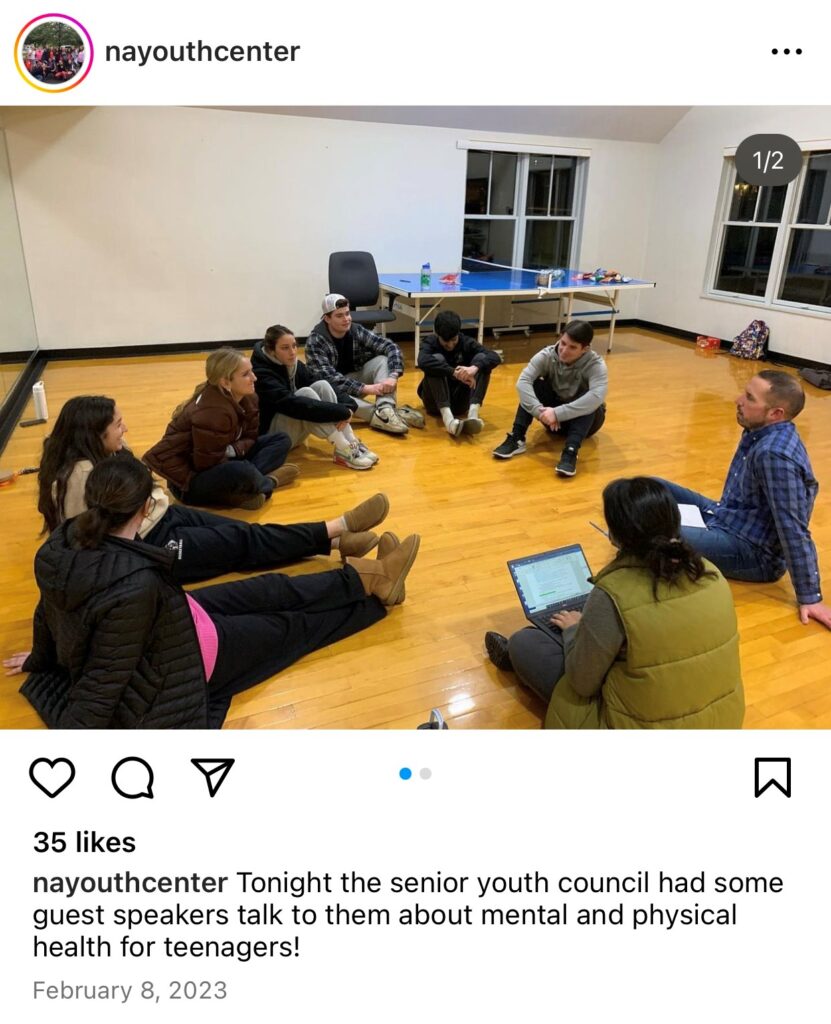
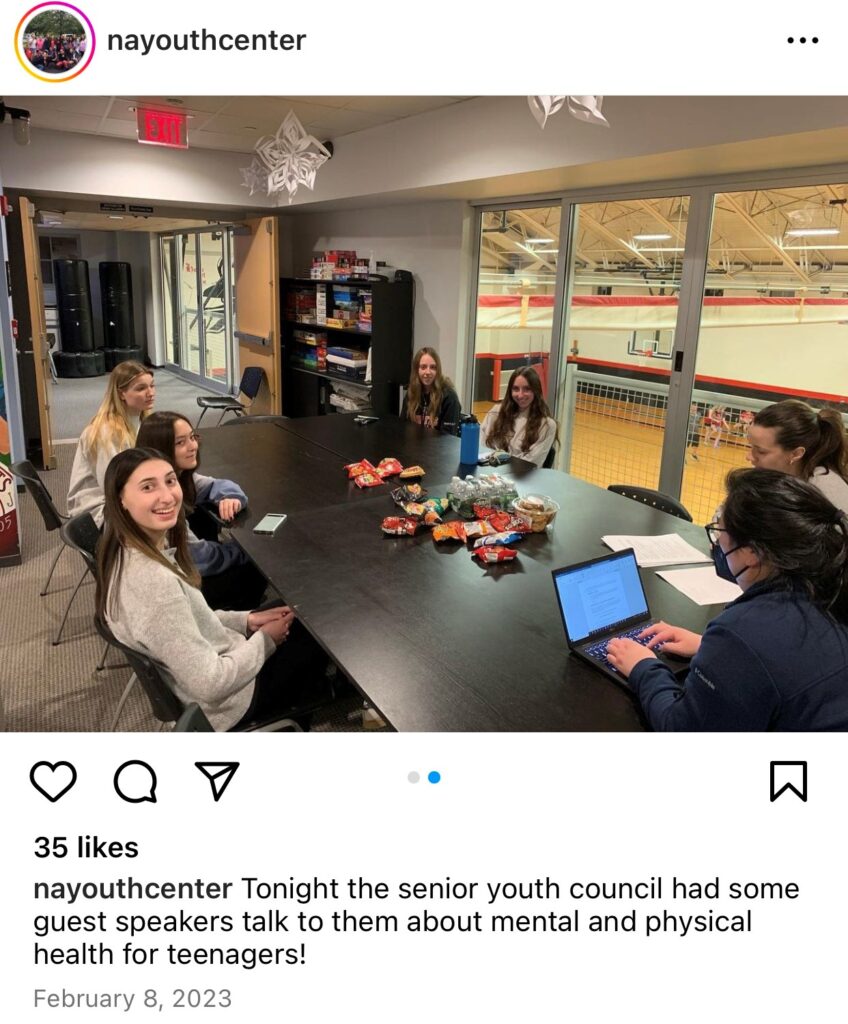
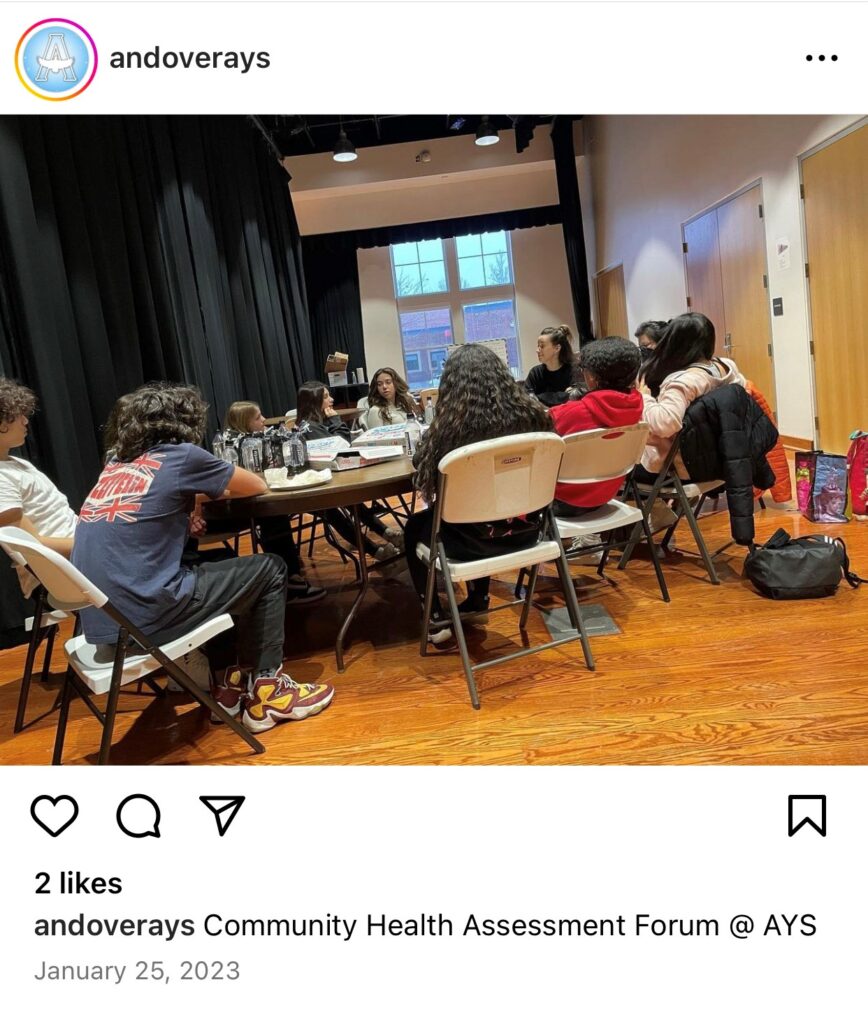
Resources
Leadership
Want to see how we can create impact together?
We are eager to build partnerships with those who share our vision of healthy thriving communities. Reach out to us to get the conversation started.
